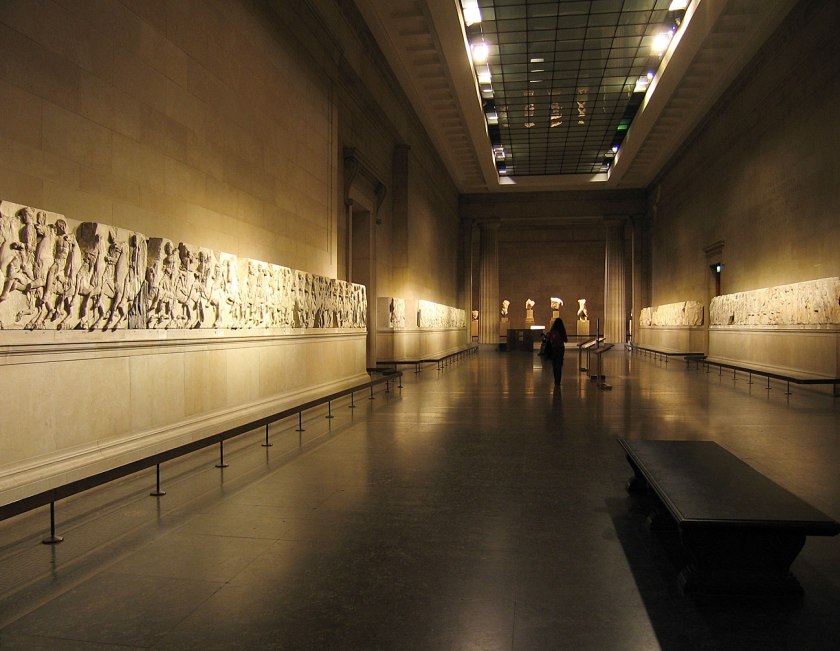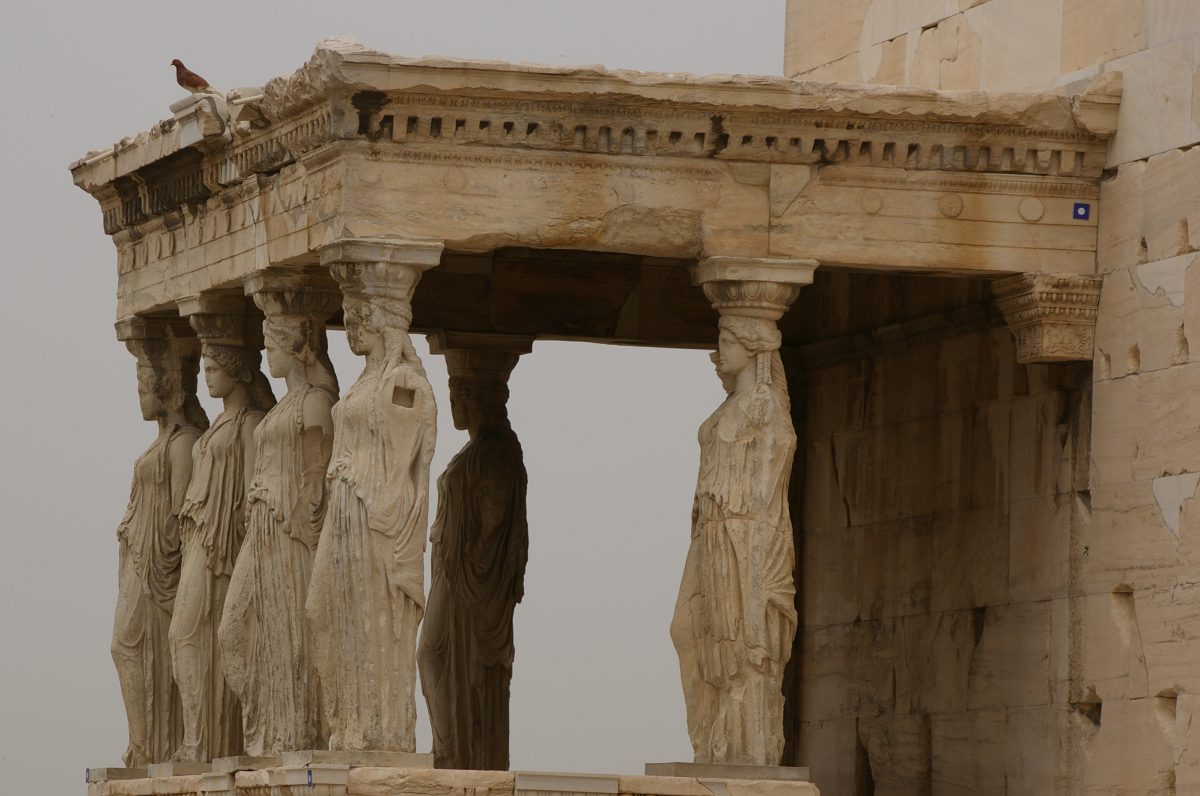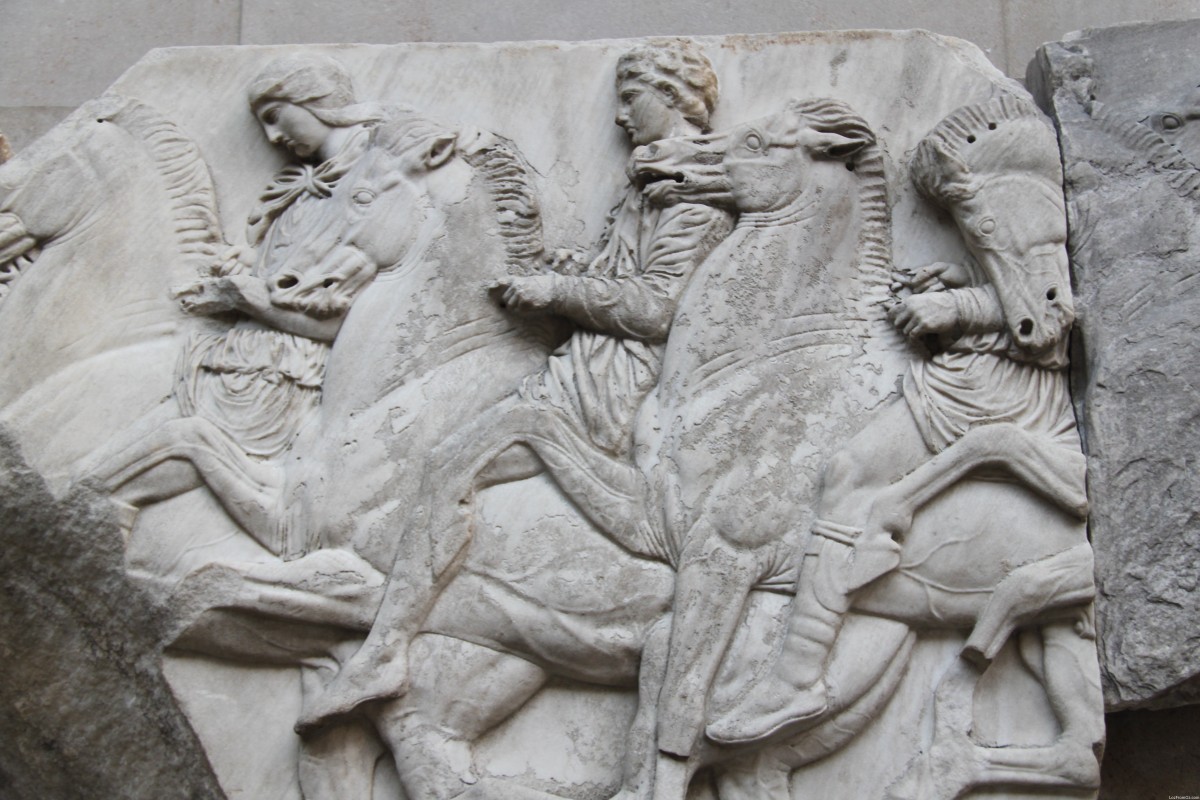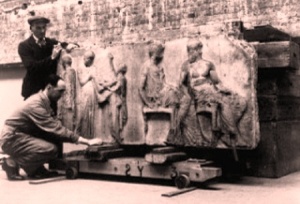Suffice it to say now –when I purpose to retake this blog– the lines written by Keats regarding his thoughts on his own mortality but using as a metaphor the imagery related to the Elgin Marbles which were a hot issue in the London of his time.
My spirit is too weak—mortality
Weighs heavily on me like unwilling sleep,
And each imagined pinnacle and steep
Of godlike hardship tells me I must die
Like a sick eagle looking at the sky.
Yet ’tis a gentle luxury to weep
That I have not the cloudy winds to keep
Fresh for the opening of the morning’s eye.
Such dim-conceived glories of the brain
Bring round the heart an undescribable feud;
So do these wonders a most dizzy pain,
That mingles Grecian grandeur with the rude
Wasting of old time—with a billowy main—
A sun—a shadow of a magnitude.
(John Keats, 1816)
Perhaps Keats is lamenting the temporal dislocation and uprooting of those superb friezes at the Parthenon only to be brought to European museums, in sawed-off pieces which, also, disrupt the poet’s feelings at a time when he was feeling downcast because of his sickness.
Jesús Lorenzo Vieites
#johnkeats #onseeingtheelginmarbles #romanticism #elgin #parthenon_frieze #athens #grecian #sculpture #frieze #classical #lord_elgin




